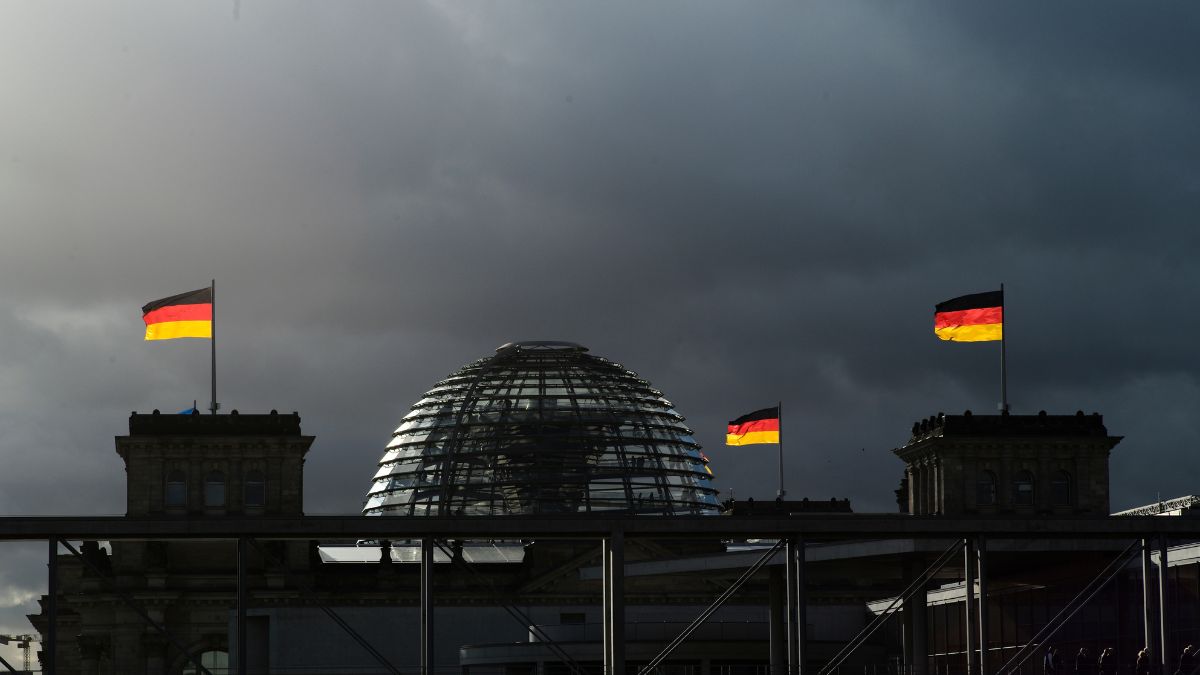The German election on February 23, 2025, shocked the Grand Old Party, Social Democratic Party (SPD), which achieved its worst electoral performance in post-war Germany. The SPD suffered a historic collapse, falling to just 16.4 per cent, marking its weakest performance in the post-war era. Meanwhile, the far-right Alternative for Germany (AfD) secured the largest voter share in a single election, consolidating approximately 9.1 per cent of the vote and securing the second position.
This snap election was held after Chancellor Olaf Scholz’s coalition government collapsed in late 2024. It generated debate around its stagnant economy and polarised society over the economy, immigration, culture, and foreign policy issues. The profound distrust of the ruling party and other factors, such as the economic downturn since 2019 and the impact of immigration, followed the violence. This shaped the voter’s behaviour and, therefore, the election outcome, leading to a more fragmented political system with emerging challenges for the next government.
The election outcome saw the Christian Democratic Union (CDU) and Christian Social Union (CSU) coalition, led by Friedrich Merz, emerge as the winner with 28.6 per cent of the vote, as exit polls had predicted. In a massive turn, the AfD doubled its vote share, claiming 20.8 per cent, a surge attributed to increasing discontent with immigration policies and frustration with the economic status quo and the rising energy prices after COVID-19, followed by the Russia-Ukraine war. Energy prices have eased since reaching record highs in 2022, and electricity and natural gas prices for industrial customers in Germany remain above the European and global averages. In the first half of 2024, energy-intensive German firms paid approximately €0.25 ($0.26) per kilowatt-hour of electricity—well above the EU average of €0.22 per kWh.
Voters disengaged from the ruling elites and SPD’s failed reforms, eroding trust in the traditional left. The Greens’ share dropped to 11.6 per cent, and the FDP could not meet the 5 per cent threshold (in the German system, 5 per cent is required to get a seat in Parliament). This fragmentation deepened gridlock and forced complex coalition negotiations. This election reflected shifts in priorities, with populist parties and fragmentation reflecting broader changes.
Impact Shorts
More ShortsFrom an economic perspective, the slowdown since 2019 has triggered a negative perception. The German GDP growth rate has been stagnant for decades. For instance, the GDP growth in the 2010s was only 1.4 per cent, and in the 2020s, it was just 0.4 per cent. These factors, in addition, are attributed to global challenges such as the COVID-19 pandemic, the competition with China, and the impact of Russia’s invasion of Ukraine. These global disruptions increased energy prices, reduced economic competitiveness, and caused a general economic decline.
Many Germans feel that they are not benefiting from Germany’s once-strong economy. Public frustration with the economic policies of the past decade led many voters to turn toward parties promising bold changes, such as the AfD, which gained significant traction in economically disadvantaged regions.
Immigration has been a polarising issue in German politics for years. The surge of migrants and refugees from Arab regions and Ukraine (Germany has taken the largest number of refugees from Ukraine, 1.2 million) has put immense pressure on the country’s social services and labour markets, raising concerns about cultural integration, security, and the strain on resources. This issue has become a lightning rod for political discourse, with the AfD capitalising on anti-immigration sentiments and calling for stricter policies. This, in turn, fuelled a growing divide between more conservative voters and those advocating for more liberal immigration policies.
Germany’s ageing population poses a long-term challenge. The median age has risen to 46.7, requiring more government support for healthcare, pensions, and social services. This demographic shift strains welfare systems and increases the burden on the economy. Fewer younger voters offset the influence of older voters, many of whom support conservatives. This election saw a sharp voting pattern for the younger generation for both extremes, far-left and far-right.
Survey research in the Organisation for Economic Cooperation and Development (OECD) countries reveals that public trust is the lowest in Germany in terms of financial health, democracy, and institutional trust. As many as 74 per cent expressed concerns about the dire economic situation, while 57 per cent felt Germany couldn’t transform. The collapse of Olaf Scholz’s coalition blocked key reforms. Alarmingly, 51 per cent distrusted democracy, and 51 per cent doubted the courts’ effectiveness. As trust eroded, voters turned to populist parties. However, 93 per cent emphasised local-level engagement, and 91 per cent advocated for state involvement, showing a desire for politics to be more responsive.
Economic stagnation, rising immigration concerns, violence, and an ageing population created a volatile environment in Germany, which largely impacted the election outcome. The AfD’s success signalled voter frustration with the existing policies on the dimension of issues, while the decline of the SPD and Greens highlighted trust issues in traditional politics. As Germany enters a new phase of political instability, addressing economic inequality, immigration, and an ageing society will be crucial for the next government. These changes will also impact its global status, internal social cohesion, and political stability.
The author is a PhD candidate at Jawaharlal Nehru University, New Delhi. The views expressed in the above piece are personal and solely those of the author. They do not necessarily reflect Firstpost’s views.


)

)
)
)
)
)
)
)
)



